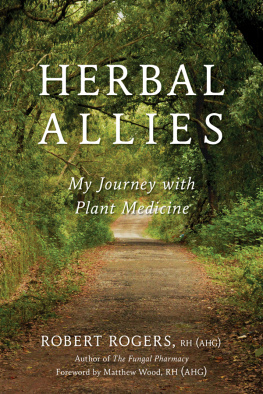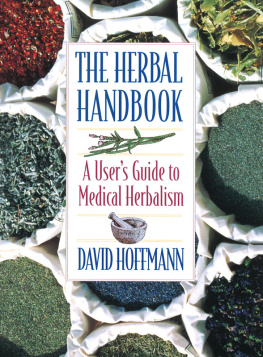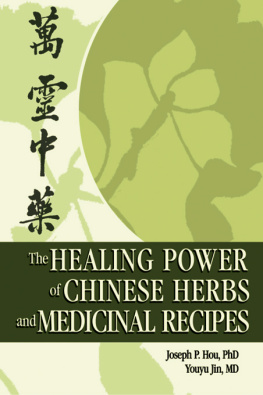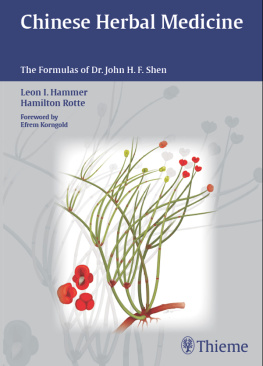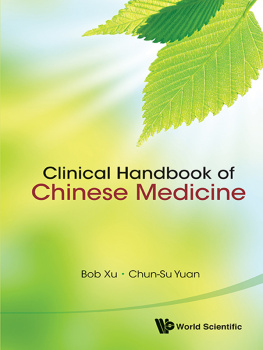Principles and Practice of Phytotherapy
Modern Herbal Medicine
Second Edition
Kerry Bone, MCPP FNHAA FNIMH FANTA DipPhyto BSc(Hons)
Director of Research and Development, MediHerb, Warwick, Queensland
Associate Professor, University of New England, Armidale, Australia
Simon Mills, MCPP FNIMH MA
Director, Centre for Complementary Health Studies, University of Exeter, UK
Chairman, British Herbal Medicine Association
Secretary, European Scientific Cooperative on Phytotherapy (ESCOP)
Churchill Livingstone
Dedication
This book is dedicated to the late Hein Zeylstra, a beloved colleague, and former Principal of the College of Phytotherapy in England, who through his enormous energy over 25 years inspired us both in our work.
About the Authors
Kerry Bone
Associate Professor Kerry Bone as the co-founder and Director of Research and Development is the innovation driver at MediHerb. He was an experienced research and industrial chemist before studying herbal medicine full-time in the UK where he graduated from the College of Phytotherapy in 1983 and joined the National Institute of Medical Herbalists. As a practising herbalist (28 years experience) he still maintains a busy practice in Toowoomba in Queensland. As Associate Professor at the University of New England in Armidale, Australia, a position held for more than 7 years (currently adjunct), he developed their innovative programme, the Masters of Health Science (Herbal Medicine). Kerry is a prolific author, with six published herbal medicine books that are renowned as defining herbal texts in natural medicine schools throughout the world. A recent book, written in conjunction with Rob Santich, is Healthy Children: Optimising Childrens Health with Herbs. He has also co-authored more than 30 scientific papers in the field of herbal research.
Simon Mills
Simon Mills is a Cambridge graduate in medical sciences who has been a herbal practitioner in the UK since 1977. In the intervening years he has had a leadership role in the field of herbal medicine, including as Chairman and President of the British Herbal Medicine Association, President of the National Institute of Medical Herbalists and President of the College of Practitioners of Phytotherapy. He has been a professional member of the Herbal Medicines Advisory Committee, the first UK government committee in this area, and since January 1997 Secretary of the European Scientific Cooperative on Phytotherapy (ESCOP), the lead European body working to ensure quality, safety and efficacy for herbal medicinal products in collaboration with the European Medicines Agency (EMA). He co-produced the 1996 edition of the authoritative British Herbal Pharmacopoeia and has written many books and articles in the scientific literature including controlled clinical trials and other primary research. In 2000 he founded the first MSc programme in herbal medicine in the USA at Tai Sophia Institute for the Healing Arts. More widely he has led large projects for the UK government and the European Union and has held academic posts at the University of Exeter and Peninsula Medical School in the UK. He pioneered many developments in complementary and alternative medicine in the UK and in 19992000 was Special Advisor to the seminal report from the British House of Lords Select Committee on Complementary and Alternative Medicine.
Copyright

2013 Elsevier Ltd. All rights reserved.
No part of this publication may be reproduced or transmitted in any form or by any means, electronic or mechanical, including photocopying, recording, or any information storage and retrieval system, without permission in writing from the publisher. Details on how to seek permission, further information about the Publishers permissions policies and our arrangements with organizations such as the Copyright Clearance Center and the Copyright Licensing Agency, can be found at our website.
This book and the individual contributions contained in it are protected under copyright by the Publisher (other than as may be noted herein).
First edition 2000
Second edition 2013
ISBN 978-0-443-06992-5
British Library Cataloguing in Publication Data
A catalogue record for this book is available from the British Library
Library of Congress Cataloging in Publication Data
A catalog record for this book is available from the Library of Congress
Notices
Knowledge and best practice in this field are constantly changing. As new research and experience broaden our understanding, changes in research methods, professional practices, or medical treatment may become necessary.
Practitioners and researchers must always rely on their own experience and knowledge in evaluating and using any information, methods, compounds, or experiments described herein. In using such information or methods they should be mindful of their own safety and the safety of others, including parties for whom they have a professional responsibility.
With respect to any drug or pharmaceutical products identified, readers are advised to check the most current information provided (i) on procedures featured or (ii) by the manufacturer of each product to be administered, to verify the recommended dose or formula, the method and duration of administration, and contraindications. It is the responsibility of practitioners, relying on their own experience and knowledge of their patients, to make diagnoses, to determine dosages and the best treatment for each individual patient, and to take all appropriate safety precautions.
To the fullest extent of the law, neither the Publisher nor the authors, contributors, or editors, assume any liability for any injury and/or damage to persons or property as a matter of products liability, negligence or otherwise, or from any use or operation of any methods, products, instructions, or ideas contained in the material herein.



Printed in United States of America
Forewords
Dr Michael Dixon, OBE, MA, FRCGP
General Practitioner
Chairman, College of Medicine, London, UK
Family doctors working in the UK National Health Service know very well that their tools are not suitable for all their work. So many of their patients present conditions for which there are few effective prescription options. Most everyday viral infections are left for nature to take its course, with at best a little symptom relief; we check persistent headaches for pathologies and if absent send patients away to find their own analgesics; we are reluctant to prescribe much for children or add to the medication list of the elderly. Even where chronic long-term conditions are being medically well managed, many still come in with persistent tiredness, low mood, stress, distress and sleep problems, disabling joint and muscle pain, or a diversity of digestive problems that we tend to lump together as irritable bowel syndrome. If we add the many menstrual and menopausal difficulties that women can face, we can quickly account for the bulk of family doctors case loads and conclude that most of them are not appropriate for prescriptions.
Next page

